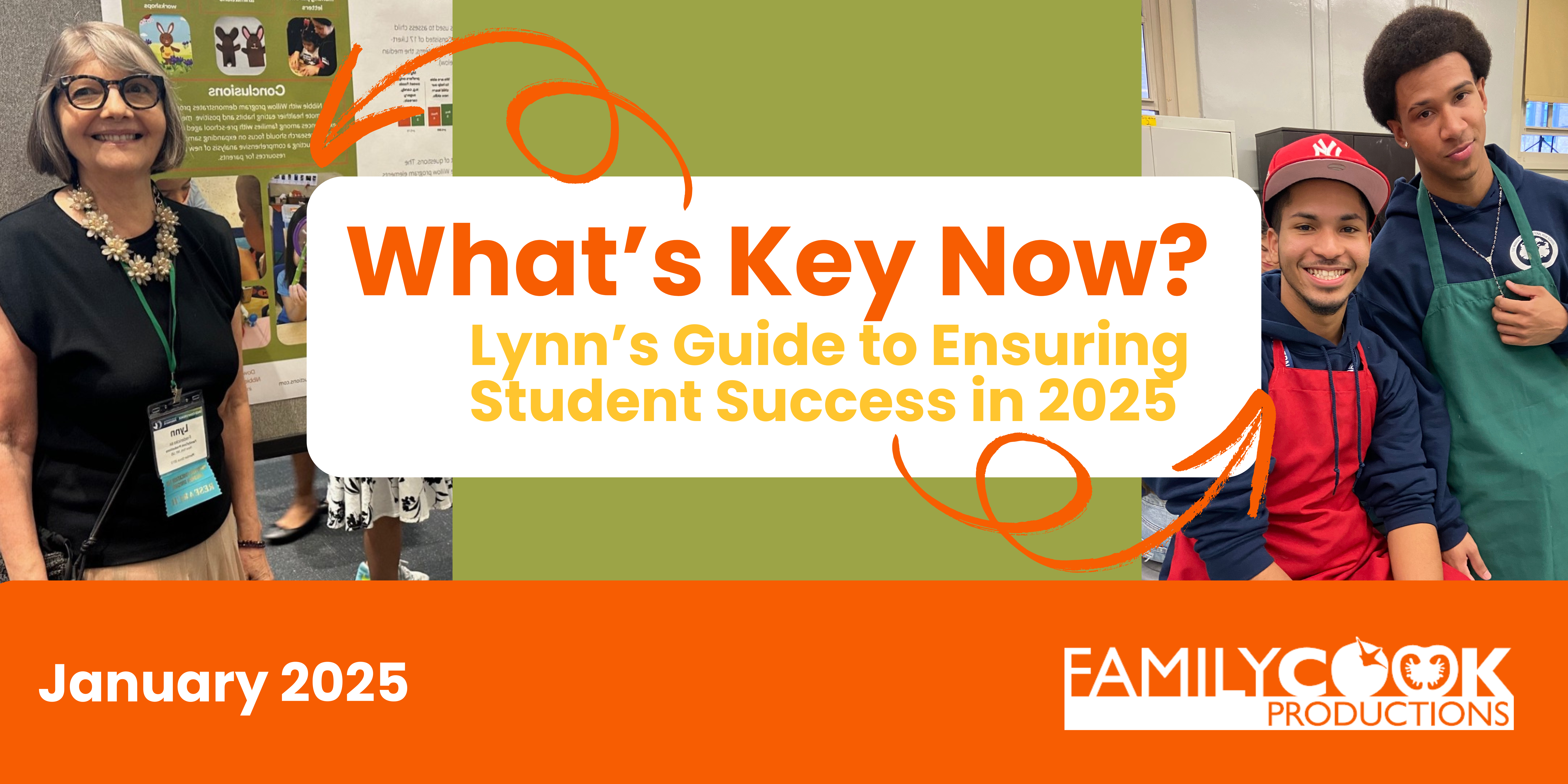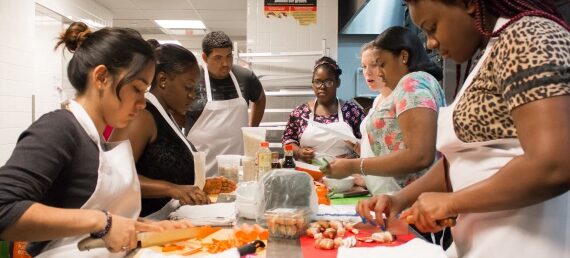What’s Key Now?

By Lynn Fredericks
Our FamilyCook Teaching Kitchen offerings have remained fairly stable over the last few years, but that does not mean we can be complacent or assume that what program approaches which worked previously will continue to yield similar results. The residual effects of COVID on adolescents from missing two years of social interaction are profound and require new areas of emphasis and engagement within our Teaching Kitchen offerings. Likewise the littlest learners who participate in our Nibble with Willow preschool program were born of parents who were likewise isolated and experienced less in-person interactions. They are less inclined to seek out in-person experiences. From how our activities are conducted to how we train facilitators to teach our curricula, important shifts are proving key to continue to produce the outcomes our programs partners have come to expect from our evidence-based offerings. We will explore these shifts in 2 parts. Part 1 below shares new approaches to succeed in engaging adolescents.
Shifts in Youth Mentoring
The adolescents of 2025 are becoming young adults in an environment where nearly every process around them is facilitated through an online form navigated through their phone or a computer. Yes, they may still talk to a human guidance counselor, but it is often conducted through zoom, maybe ina group and not one on one, and usually involves an online ‘intake’ or other survey or form. What is unique and promising about an individual student is less likely to ‘stand out’ as the online environment tends to dehumanize young people. This is not an intended effect, but it is the end result of the total reliance upon online systems. Equally problematic may be individual students’ challenges which they may be shy to write about in a form or speak out in a group, so they hold back and this can lead to depression and isolation. We know this is a fact from hearing this feedback directly through interaction with over 100 youth in our CHEF culinary workforce/access to college program and from instructors who work in our many Teen Battle Chef schools both in NYC and around the US.
Top 3 Shifts We Will Make in 2025 to Support Adolescents’ Success
1.Offer MORE Opportunities for Youth to Receive Individual, One on One Support in Person or Virtually
According to our Director of Youth Development, David Bartolomi,
“Our youth need our human connection and mentorship more than ever. They respond best to our taking time to share with them by phone or in person, the context of why goal setting is essential, best practices to achieve short term goals, and an opportunity to reflect on achievements and progress to motivate the setting of long term goals.”
So much of this was more obvious to the youth of 5 + years ago. There is a gap now, and this is not at all obvious to today’s youth.
2.Create New Activities with a Reflection Component that Support Youth to Recognize the Value of Stepping Out of Their Comfort Zone
For the young people in our CHEF program who are receiving culinary training and job placement, youth in previous years would discover on their own how moving out of their comfort zone is key to their growth and their development of new skills. Not so with today’s youth – we have to break it down and explain how stepping out of one’s comfort zone is a necessary part of skill and personal development. By creating programmatic activities within our culinary and job readiness training to take a leap, and try something new and scary – we will emphasize for each youth how this is effective by offering a reflection opportunity and a pair/share immediately after one such opportunity to stretch what they are capable of. We won’t wait for it to sink in over time, but create the opportunity to grasp this early on.
3.Develop more Check-in/Diagnostics to Identify Youth at Risk of Dropping Out and Providing a Peer Mentor
Many youth are so quick to want to ‘throw in the towel.’ David shares:
“We have to talk them down from frustration about extended travel time to their job, early AM start times and even pressure from their supervisor to perform at a certain level. They would be very quick to simply quit if we did not explain why quitting would not be in their best interest and why staying long enough to adjust to new demands ultimately leads to exciting shifts in their abilities and sense of accomplishment.”
Clearly more phone or computer based learning is the opposite of what youth need to succeed. They need mentoring, clear rationales and a nudge to not give up. In 2025 we will address this with more check-ins to detect youth who have become discouraged and ensure they are paired with a peer who is fired up and succeeding. In this way youth can learn from each other and from their mentor. Adding peer mentors to our mentorship program, and not just offering an older mentor, will help to normalize their fears and feelings, and reduce their sense of isolation.
Being nimble and addressing change with programmatic solutions can ensure program success as our participants and the world around them changes as well!

